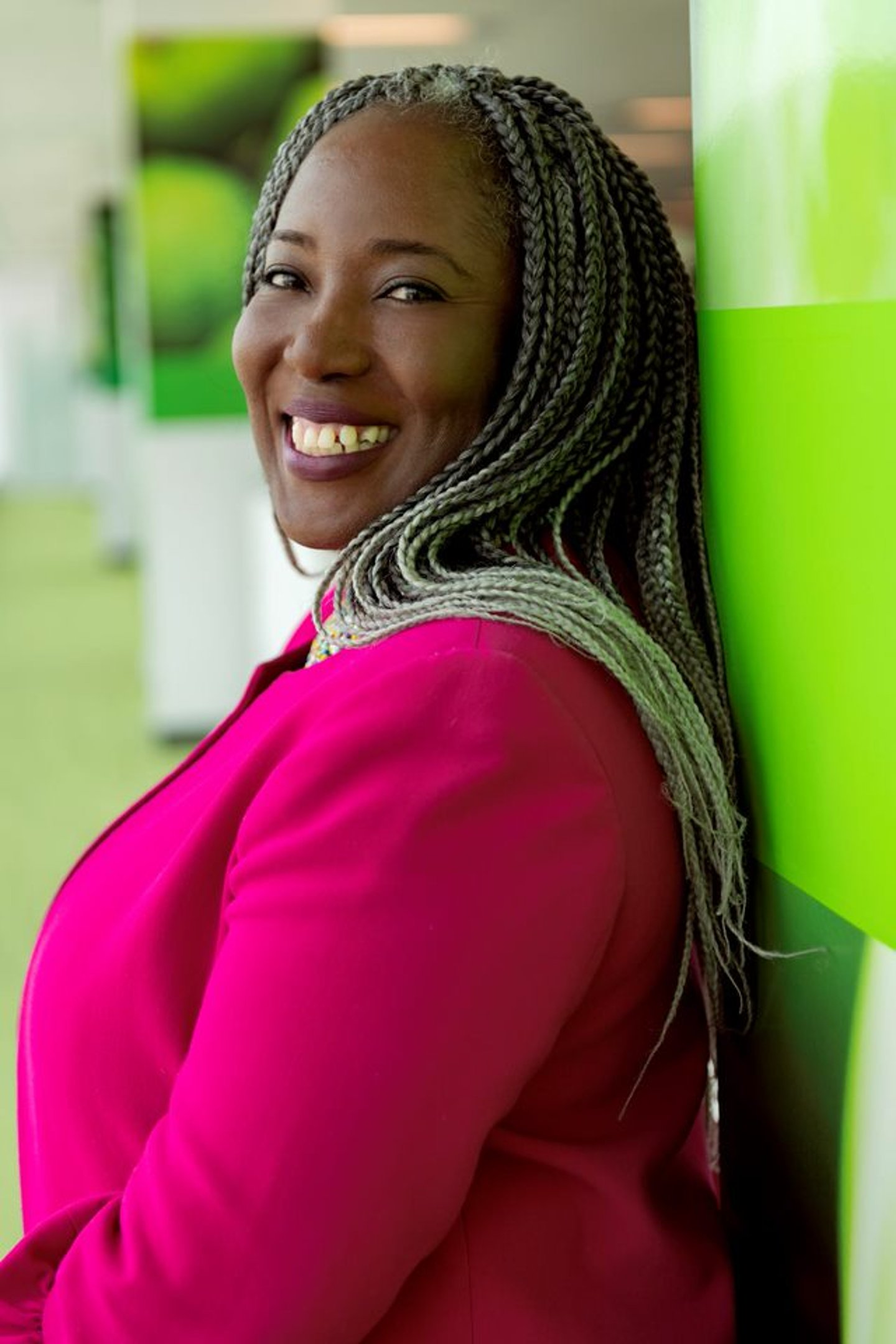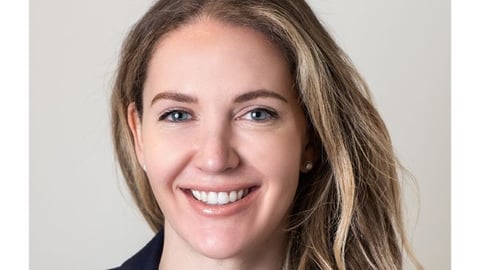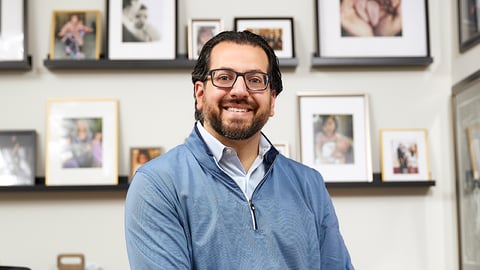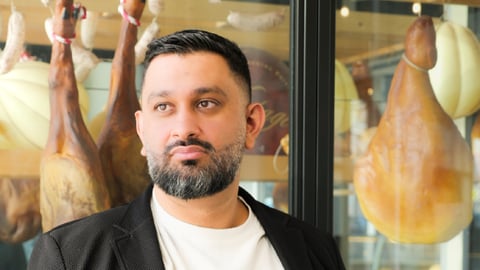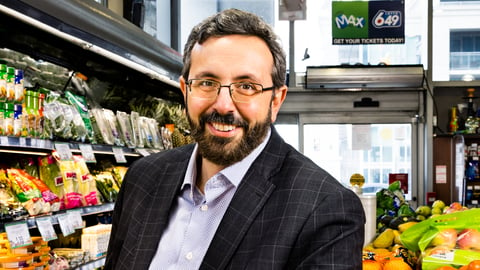How Sobeys' Karen White-Boswell Takes The Lead
As director of external communications at Sobeys, Karen White-Boswell credits the diversity within her team for making her a better communicator and more empathetic leader. Media coverage about diversity, equity and inclusion (DEI) of late, however, has been focused on the several Fortune 500 companies who have scaled back or thrown away their diversity initiatives.
READ: Costco successfully defends its diversity policies as other U.S. companies scale theirs back
At Empire Co. Ltd., the parent company of grocery chains like Sobeys, FreshCo, Thrifty Foods and Farm Boy, among others, DEI is not a policy to be withdrawn, hidden or highly publicized based on shifting political or cultural winds. It’s ingrained in the organization’s very DNA, driving innovation, enhancing customer experiences, guiding community investments and strengthening Empire’s ability to attract and retain talent.
Here, White-Boswell—who joined Sobeys near the start of the COVID-19 pandemic and prior to that was director of corporate responsibility at Purolator—shares words of wisdom for team members disheartened by how easily some companies have seemingly abandoned DEI.
The executive (a 2023 Star Women in Grocery award winner) also discusses the role of leaders in fostering an environment where team members are empowered to take calculated risks, the potential of AI and how the enlightening conversations she has with her young adult daughters and their friends contributes to her leadership skills.
Why is diversity within your own department important to you as a leader?
I like when people challenge my thinking—there is a lot of value to be had in getting outside my own thought process. But that requires having a team diverse in age and cultural backgrounds. For instance, the conversations I have with my daughters about where they and their peers are consuming their news is going to be very different from others because of their unique personal experiences. They identify things that would have never come to my mind, and as a result push me to think about something differently. Similarly, there can be subtle differences in how a piece of communication might be interpreted by our various audiences—differences only revealed because of the cultural diversity on our team. And from a female leadership perspective, we need women of all age cohorts and backgrounds in our business. That intersectionality is important because at the end of the day so much of the grocery shopping within Canadian families is still done by women.
How does Sobeys, and its parent company Empire, help support and cultivate female leadership?
The infrastructure that Sobeys has built to foster female leadership has been integral to the growth of the business. They have a Women’s Inclusion Network, a network of female leaders that I joined recently. This network helps create the capacity for women to grow across the organization in succession plans and in their growth and development as individuals and leaders. And thanks to programs and benefits like Empire’s maternity leave top-up, women can come into this organization and take time off to start a family without derailing their professional aspirations or career trajectory. And I love that for the next generation. I wish I had that sense of professional worth when I was having children because you start to feel like your value is negated outside of being a mother. You shouldn’t be made to feel the two are in competition with one another—women should be able to grow in both capacities if they choose to.
READ: KDPM Consulting Group CEO on how to drive organizational change in DE&I
What do you impart to team members who may be feeling upset, discouraged and disappointed by the pullback on DEI in corporate America?
There are two quotes that I always reference when people ask me about this. One is, “You should be seen doing good, not doing good to be seen.” And the other is from Maya Angelou: “When people show you who they are, believe them.” And so, when you see organizations moving away from DEI, the reality is they probably were never really there to begin with. If creating an equitable and fair environment where people can be their authentic selves and thrive is embedded in an organization's DNA, they wouldn't so easily discard DEI—there would need to be major restructure and realignment. DEI that is easily thrown away—or what others say “cancelled”—was only performative. And so, I don’t mind saying, we continue to be committed to DEI but the commitment has to be shown. If we can’t show it, then it’s not there. That is ultimately the test.
You’ve addressed before the importance of creating an environment where employees don’t see failure as a death sentence. Why do you instead see it as a door for learning, growth and opportunity?
There are errors that are going to cause you stress—no question about it. But there’s also the idea that once you get through whatever caused that stress, to sit back and say, “OK, what are we going to do differently? How do we learn from this?” The other thing is humility. I am going to date myself here, but when I was little, I remember this song from Sesame Street: “Everyone Makes Mistakes.” And it’s true, we all do. There's always going to be room for error and moments when we’re not going to succeed. But that's how innovation happens. I may rewrite a piece five times. It doesn't mean that I am a bad writer. It means that I started with something, and I continue to think about it, read it and tweak it, and make it better. Nothing comes out perfect just as a diamond doesn't emerge from the ground perfectly cut. It’s raw and covered in dirt, needing to be cleaned and refined. That’s the reality of life—refinement, which makes mistakes an essential part of the process.
What role can AI play in that process?
Technology is continuing to evolve and there is always going to be fear and concern when new concepts and tools come into our lives and workplace. When the internet first came up, people thought, “Well, that’s it, we’re all going to be plagiarizing each other at the end of the day.” But then we had conversations about the rules of engagement and the guardrails needed to uphold ethical boundaries. And those are the conversations we’re having right now about AI within the team. We also need to figure out the art of the possible and then come to an alignment at a leadership level on the expectations of our teams on how they use AI.
What do you do outside of work that makes you a better leader at work?
The time I spend with my family—my husband and our daughters. They’re young adults and the conversations we have with them, whether at home or when we travel together to places like Jamaica, help me stay connected to the changing world and the challenges that young people face. It’s about listening to everyone around you, but not in a way where it’s just noise—you need to make a concerted effort to hear someone else’s experience. And when you truly listen, you grow your capacity to understand the world around you and to be compassionate, which is a really important trait for a leader. Listening is a muscle I continuously exercise. Outside of raising two beautiful daughters, I’ve found fulfillment in serving on the board of Second Harvest, because I know even my small contribution can be meaningful in helping our environment and those who are food insecure.
Canadian Grocer's How I Take The Lead series speaks to people from across the industry about how they take the lead on a specific project, initiative or aspect of their job. You’ll hear from grocery leaders about their passions, how they tackle challenges, what they’ve learned and what keeps them motivated. Have a pitch? Send it to digital editor Jillian Morgan.

